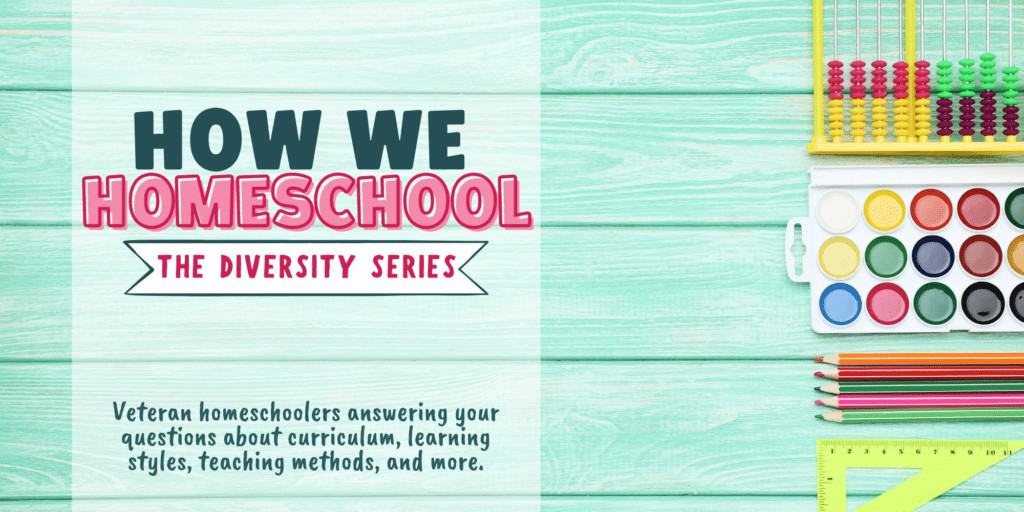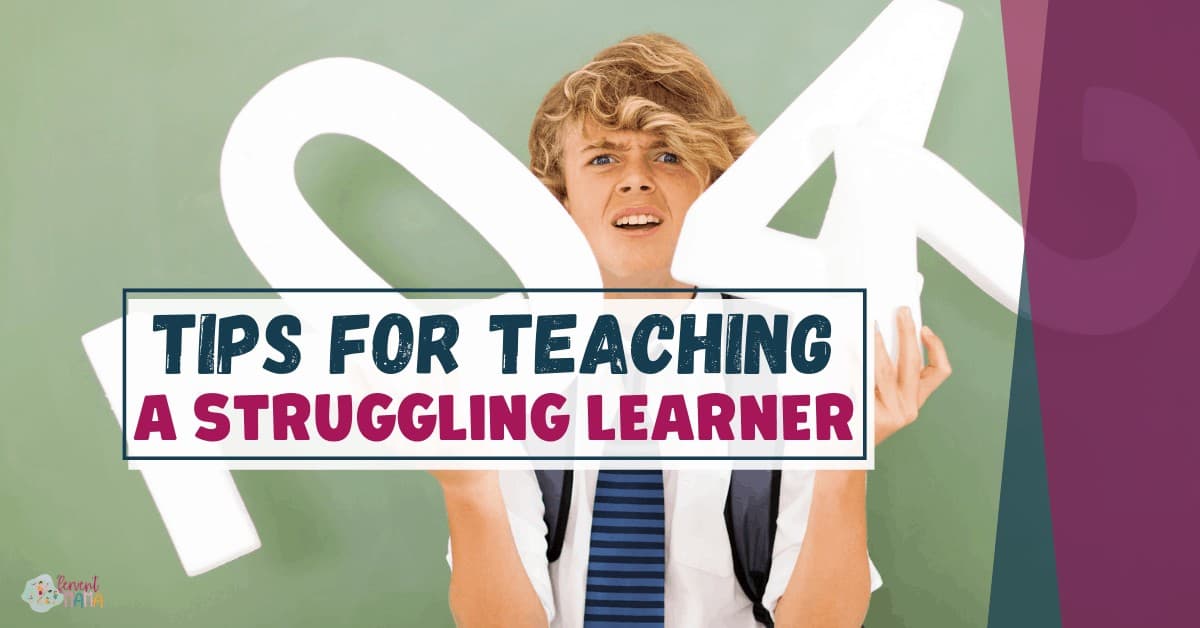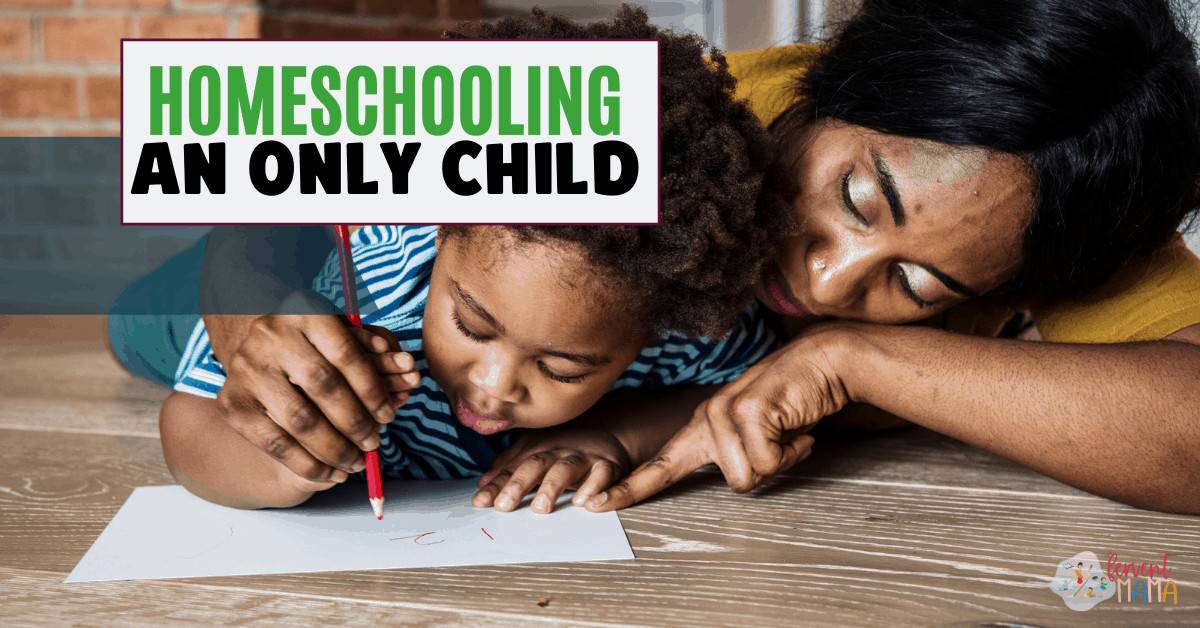How to Homeschool a Struggling Learner
The Fervent Mama uses Affiliate Links. See our disclosure policy here.
At some point in your career as a homeschooling parent you are going to have a student that doesn’t quite “get it.”
Maybe your child is struggling to learn to read, perhaps they can’t figure out Algebra. Or maybe you suspect that they have a real learning disability.
Instead of throwing in the towel, let’s walk through how to homeschool these struggling learners when we feel at a loss.
How to Homeschool a Struggling Learner
First, let’s take a look at your children.
The greatest blessing of homeschooling is that we actually know our students. Like really know them.
We know what motivates them, what makes them tick. We understand what frustrates them and what brings them great joy.
So if your student is struggling with learning or in a specific subject, take some time to figure out if this is something that they just haven’t put in the effort to figure out, maybe they just don’t like doing it.
Are they bored, being lazy, do they give up easily in other areas of their life? Have you noticed them struggling with this in real world applications?
Next, take a hard look at ourselves.
Have you set them up for success? Do you give them enough time to grapple with the subject without you becoming frustrated? Do you set aside extra time in your day for the both of you to work together?
These are important questions, because when we feel frustrated, it adds an extra layer of stress to our student and most struggling students can’t work under the pressure of disappointment.
It’s also important that we understand the materials, so that can include really working on it together.
I may not be a Math expert, but I should know the way the textbook is laid out, understand where the lessons are, and be able to find the appropriate answers in the book.
If we familiarize ourselves with each of the curriculums that we are using, we can more easily offer help and guidance.
If you already know that your child has trouble when it comes to learning, then making the decision to homeschool a struggling learner can be a weighty one.
But, don’t lose hope! Take these tips with you to be confident that you’re making the best decision for your children, and your family!
The Controllable
What Curriculum are you using?
With homeschooling, you are not stuck in or with any particular curriculum. If it’s not working for your child- move on.
I do think you should give it a good go, but if your day is filled with more tears than smiles- toss it and don’t look back.
Learning everything that you can about your child, how they learn, and their particular interests is key to finding the best way to homeschool a struggling learner.
If your child is a visual learner than choose curriculum that allows them to read, see, and touch what they are doing. If they really thrive when you are near them, choose curriculum that allows you to interact through games, reading, and parent-led teaching/learning.
If your student loves technology, then maybe a computer-based curriculum is appropriate.
If you understand your student’s learning style, then finding the right match for curriculum will be easier and less frustrating.
You have the right curriculum? Now what?

You have chosen thoughtfully and your student is still struggling. How do you help them? Take a deep breath. You’ve got this!
If your student is young and just beginning their homeschool journey, they may not be ready for formal learning.
I spent 2 years trying to teach my daughter to read, convinced that she was dyslexic, only to realize that she just wasn’t ready.
Once she was, things began to fall in place and her reading skills are now coming along nicely. There are many schools of thought that don’t think formal schooling should happen before 3rd grade.
So give students and yourself grace and school gently with those subjects that they are having trouble with.
Start with the basics
With whatever subject they are struggling with, go back to the basics. I spent my childhood traveling around the country and with every new move, I inevitably fell further behind. It was years before I could get caught up because I just kept missing the basics.
If it’s reading- go back to letter sounds and phonics. If this is where you are, check out this great beginning letter and sounds curriculum.
Once you know that they for sure understand and are beginning to master a particular skill, move on to the next skill.
If it’s math and they are struggling with long division- go back to single-digit addition- then move to subtraction- make sure they understand each skill, each step of the way. Don’t jump ahead just because that is where they “should” be.
Homeschooling is wonderful in that we can tailor our children’s education in just the way they need it.
Move at a Slower Pace
We are not slaves to our curriculum. It works for us. If you need to spend a week on a concept when the book says it’s meant to be completed in a day- that is okay!
If your student is having difficulty, throw out the schedule and use your time to introduce the topic and teach it in every manner possible so that they really understand it before moving on.
When you’re homeschooling a struggling learner, moving at a pace that is comfortable to them can be key to continued success!
Find Help
We may be homeschoolers but we don’t need to be martyrs. We can’t do it all. There may be times in your homeschooling that you need to leave it to the professionals.
If your student is ten and they still can’t recognize the difference between the letter h and p, then you might consider having them tested for dyslexia and using those resources to help in your schooling.
Maybe your student is struggling with Geometry and you aren’t good at math. This is not the time to try and be a hero. Look for a tutor or trade teaching with another homeschool mom for a skill that you are good at.
When all else fails, just remember that no matter what- you are still the best person for the job! No other organization or school could give your child the individualized attention that you can.
You are more invested in their success and education than anyone else and because they are homeschooled you have the time and flexibility to let them learn at the pace that will help them be successful in the long run.
Are you learning how to homeschool a struggling learner? I’d love to hear from you!
This post was written by….

Angela loves the Lord, people, and coffee. She is wife to her ninja warrior wanna be husband, four entertaining children and in her free time can be found… wait… free time?
She writes at Schooling With Grace where she offers practical advice, resources and cheerleads parents on in their homeschool journey. Find her on Facebook or Instagram.
This article is a part of our How We Homeschool Series; a collection of content from full-time, veteran homeschoolers sharing their own experiences on the versatility and diversity of homeschooling.
You can read more about the series, and see all of the content, by clicking the image below.
















I am mom to 4 kids – 2 who are well above grade level, one struggling student and her younger brother who is passing her up (this might be the trickiest part). I see her personality and her gifts, and I have to remember that I am equipped to do this. Thank you for this post. It is encouraging me to keep on helping her.